mg-desc “> Data source: Shell Research Institute
With the slight optimization of policies, can the second-hand housing market pick up next year?
First, the current market has fallen to a low level. The volume of second-hand housing transactions in China in 2019 was 15.8% lower than the 2016 high. According to market rules, there is a “policy digestion period” in the market. When the market drops to a lower level, transactions begin to rise slowly and move closer to the average level, which is the “central value”. For example, Shanghai, Jinan, and Xiamen, where the previous market fell to low levels, have rebounded this year. Therefore, some of the backlog of demand will be gradually released next year.
Picture: National second-hand housing transactions in the past five years (10,000 units)
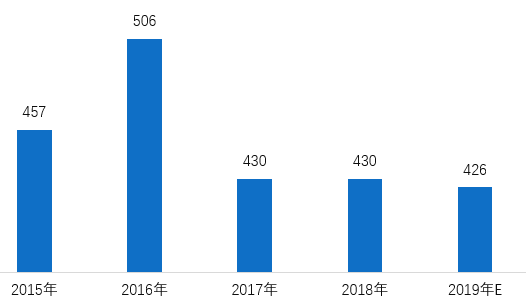
Data source: Shell Research Institute
Picture: Second-hand housing transactions in Xiamen, Jinan, and Shanghai
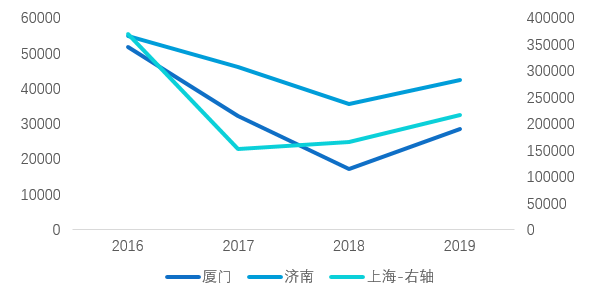
Data source: Shell Research Institute
Changes in the average value of transactions over the past five years before the market rebounds
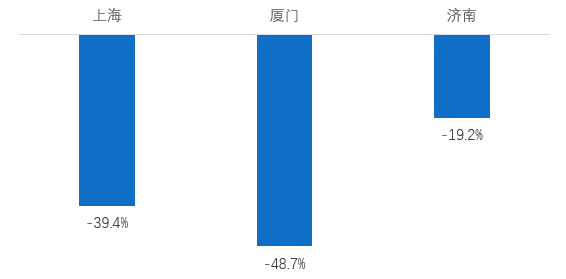
Data source: Shell Research Institute
Second, the diversion effect of new houses on second-hand houses will weaken next year. One reason for the decline in second-hand homes this year is the diversion effect of new homes, while the new supply of new homes will decline next year, and the price advantage of new homes will weaken (a second-hand price inversion disappears), the diversion effect of new homes on second-hand homes will weaken.
Picture: The average transaction price (yuan / ping) of new and second-hand housing in the main districts of Hangzhou (left) and Dalian (right)
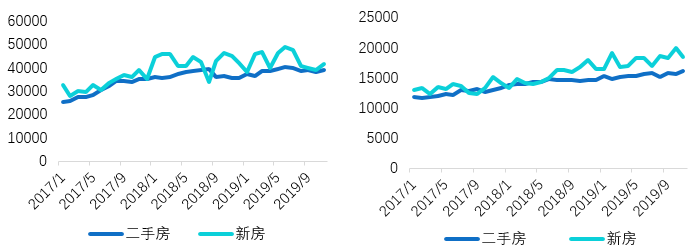
Data source: Shell Research Institute
Finally, as we said before, liberalization of account restrictions in key cities will provide certain support for market transactions; some city policy adjustments will also bring certain positive expectations to the market in the short term.
In general, the second-hand housing market will pick up at a low level next year, but the overall policy environment is still severe and it is difficult to release demand significantly. It is estimated that in 2020, the transaction volume of second-hand housing nationwide will increase by 3% to 4.385 million units, with a transaction value of 7.24 trillion.
Picture: Annual second-hand housing transaction volume and GMV trend in China
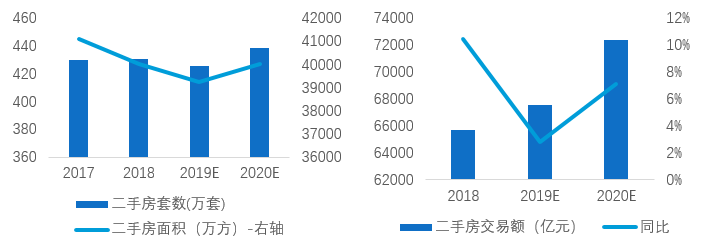
Data source: Shell Research Institute
Under the “central value” effect, Beijing, Chengdu, Qingdao, and Changsha, which have been undergoing long-term adjustments and large adjustments in transaction volume, have seen their transaction volume in 2019 decrease by more than 20% from the average of the past five years (Chengdu is close to 20%) ), The market is likely to pick up next year.
Figure: Trend of second-hand housing transactions in the city
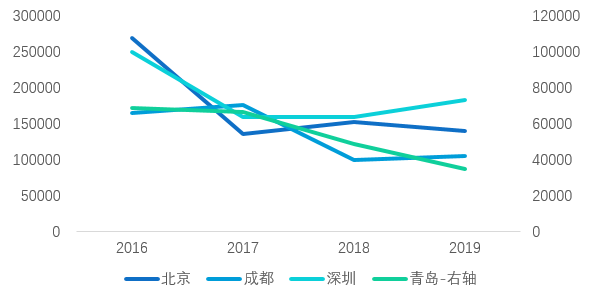
Data source: Shell Research Institute
Figure: Changes in the average value of second-hand housing transactions in 2019 over the past five years
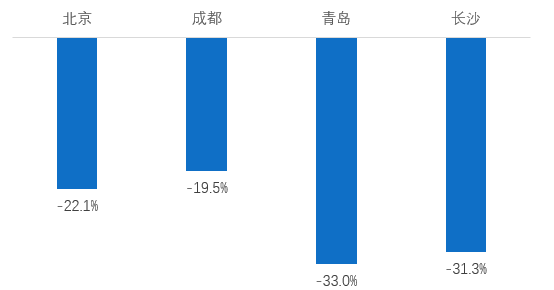
dataSource: Shell Research Institute
Disclaimer: The information contained in this article is the independent view of the Institute ’s analysts, does not represent the opinions of the institution, nor does it guarantee the accuracy and completeness of the relevant information. The content and opinions described in this article are for reference only and do not constitute market transactions and investment advice. The copyright of this article belongs to the Shell Research Institute. All rights reserved. No institution or individual may reproduce, copy, publish or cite any part of this article without prior permission.